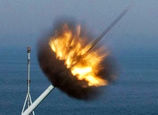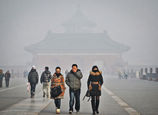
In 1840, the British government assembled 48 warships, 540 guns and more than 4,000 soldiers to blockade Guangzhou and maintain the shameful opium trade, thus launching the first "Opium War." The patriotic officials and soldiers led by Lin had a resolute resistance. Due to corruption and incompetence of Qing government, China failed in the war. Subsequently, the Qing government was forced to sign a series of treaties of national betrayal and humiliation, including Treaty of Nanjing in August 1842 and Regulations of Commerce at Five Trading Ports and Treaty of Humen signed in Guangdong in 1843.
1856
The British and French empires launched and won the Second Opium War against China.
The Qing government was forced to sign the Treaty of Tianjin with the two empires respectively, and later forced by the British Empire to sign the Supplementary Treaty of Establishing Trade Relations in Shanghai. Opium was called “foreign medicine” in the supplementary treaty, and was allowed to be imported to China after paying 30 liang of silver in customs duty for every 50 kilogram in trading ports. After passing through customs, the drug was treated as Chinese goods and sold by Chinese businesspeople, and foreign businesspeople were not allowed to interfere. The treaty legalized the opium trade in China, and all previous bans on the drug were lifted.
1906
After plundering China of enormous wealth, the British Empire bowed to pressure from all sides and said that it would not oppose China’s ban on opium. The Guangxu Emperor then issued a ban on the drug, and set a target of “completely eliminating opium in 10 years.” Compared with previous opium bans, this ban was more mature and realistic, and was implemented in a more thorough and orderly manner. The specific measures included issuing general guidelines on opium elimination, setting up an opium elimination agency and assigning capable officials to the agency, and prohibiting growing of poppies and sale of opium. This was the second massive opium elimination program in China.




















![]()
